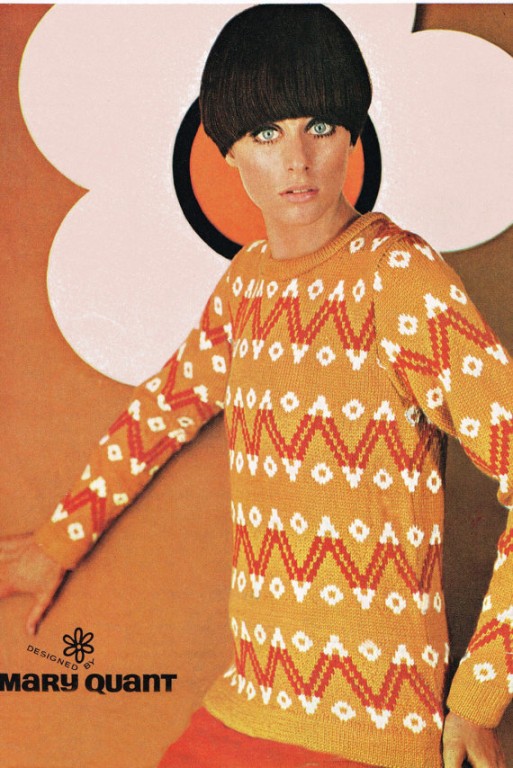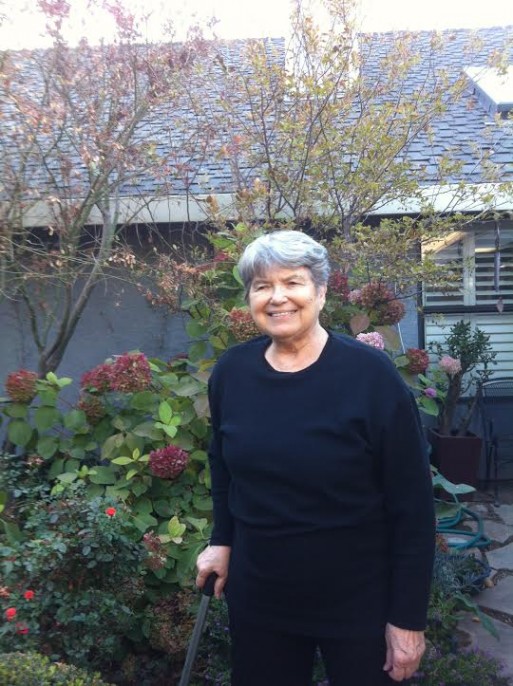When I moved to San Francisco in 2001, I drove east to spend the weekend with my Aunt Loraine in Tracy, California. I had not seen her in well over 2 decades. Since last we had seen each other, her husband, my uncle Dick, had died unexpectedly when she was 54 – note it was 17 years earlier.
Since last I had seen my aunt, her husband, my uncle Dick had died unexpectedly when she was 54 – note it was 17 years earlier.
My aunt and I spent the whole weekend sitting in her comfortable living room easy chairs chatting about everything and anything. It was such great fun, especially since she was so much like my mother. The TV played never-ending loop-to-loop old black and white romantic films. I asked her why she was not doing any handwork anymore – no sewing, knitting or crocheting like she did back in the day. I don’t remember her answer. All I know is I loved knitting magazines and the next thing I knew she pulled out a box of old ones from the ’60s and ’70s. We pored over them in absolute excitement and fun.
Things in life are always easy to see in hindsight. The next time I went to stay with Aunt Loraine she was knitting up a storm. She had made hats, scarfs, sweaters and even some baby clothes for her grandchildren. Every time I was back to visit, she had knitted piles of new designs and we would spend the weekend poring over her newest knitting magazines. Over the years, I noticed the black and white films lessened until one day they were no more.
Over the years, I noticed the black and white films lessened until one day they were no more.
I now know my Aunt Loraine was suffering complicated grief or what’s also referred to as “prolonged grief disorder.” Depending on where you may get your information, about 10 to 15 percent of people suffer such grief. It’s when you’re stuck in a place where you are unable to accept the loss. You long for the person you loved, are unable to have new relationships, continue to feel the pain of the loss and cannot accept the new reality of their being gone. It’s understood that grieving for more than 6 months signals you’re stuck in complicated grief.
It was evident to me back then that watching only black and white films was her way of reliving her life with Uncle Dick. Still, I had no idea of the depth or extreme extent of her grief. On one hand, it was so meaningful to know someone is longing for a spouse as much as she was, but in reality it was heartbreaking she missed living aspects of her life for so many years.
It was evident to me back then that watching only black and white films was her way of reliving her life with Uncle Dick.
In hindsight, completely unknowingly, I helped pull her out of her deep grieving. I had no idea till now. I’m just happy I got to spend so many memorable (and precious) visits with her as her true self again. I wonder what her life would have been had we as a society had a better understanding of grief back then?

 What I Know Now
What I Know Now




 Recovering Cremation Remains After the Los Angeles Fires
Recovering Cremation Remains After the Los Angeles Fires
 “As Tears Go By” by Marianne Faithfull
“As Tears Go By” by Marianne Faithfull
 “The Sea” by John Banville
“The Sea” by John Banville















